General nutritional principles for people with diabetes
Dr. Chu Thi Dung, University of Medicine and Pharmacy Hospital, Ho Chi Minh City - Branch 3 said that diabetes is a chronic disease caused by a disorder of sugar metabolism, characterized by prolonged hyperglycemia. The cause is due to a lack of insulin, reduced insulin effect or both. A reasonable diet is the foundation of disease control, helping to stabilize blood sugar, maintain a reasonable weight, and prevent complications of the heart, kidneys, eyes, and nerves.
Diabetics should eat enough, correctly, and regularly, divided into 3 main meals and 1-2 snacks/day, eat on time; control carbohydrate intake to 45-60% of total energy, prioritize complex carbohydrates, rich in fiber; increase green vegetables and low-sugar fruits; reduce saturated fat and trans fat, increase good fat; limit salt to less than 5g/day to reduce the risk of high blood pressure; maintain a reasonable weight, avoid weight gain.
Foods to eat
- Good sources of carbohydrates: Brown rice, oatmeal, whole wheat bread, sweet potatoes, brown rice noodles.
- Green vegetables: Spinach, kale, Malabar spinach, broccoli, pumpkin, squash.
- Low sugar fruits (eat whole, not juiced): Apples, pears, oranges, grapefruit, strawberries, blueberries, kiwi, dragon fruit.
- Good sources of protein: Fish, skinless poultry, tofu, eggs, shrimp, crab (eat in moderation).
- Good fats: Olive oil, canola oil, sesame oil, avocado, nuts (almonds, walnuts).
- Sugar-free/low-fat milk or milk specifically for diabetics.
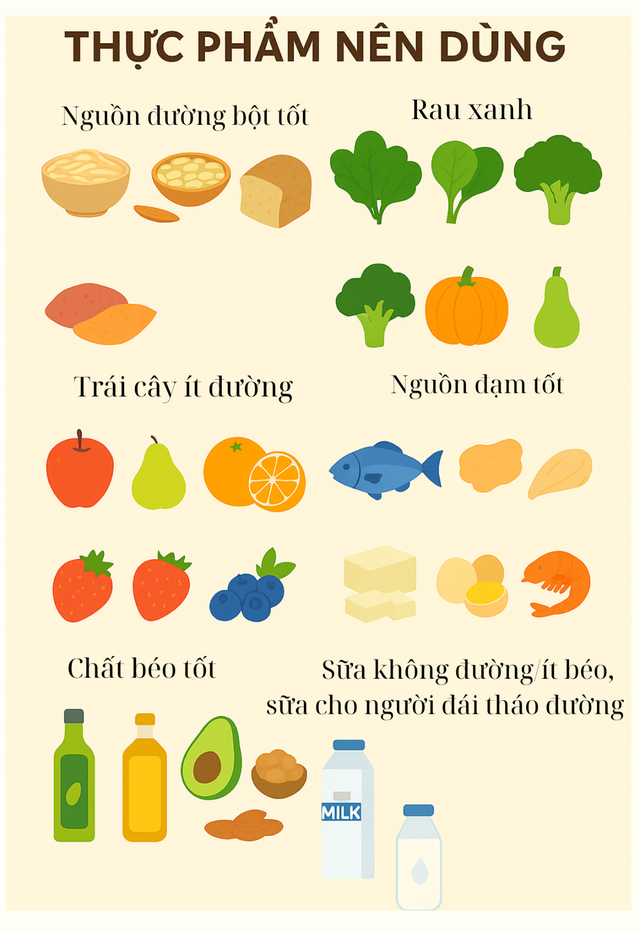
Foods that should be used in moderation for people with diabetes
GRAPHICS: LE CAM
Foods Diabetics Should Limit or Avoid
- Refined starches: White rice, white bread, noodles, white pho, potato chips.
- Sugar and sugary foods: Candy, soft drinks, milk tea, syrup, jam.
- High sugar fruits: durian, ripe mango, longan, lychee, jackfruit.
- Fried foods, fast food.
- Animal fats, animal organs (rich in cholesterol and saturated fat).
- Alcohol: can cause low or high blood sugar, especially dangerous when taking medication or insulin.
Doctor Dung advised patients to eat on time, not skip meals, especially when taking insulin or hypoglycemic drugs; measure blood sugar regularly to adjust diet; combine 30 minutes of exercise per day (walking, cycling, swimming); limit stress, get enough sleep.
For patients with high blood pressure, dyslipidemia, kidney disease, it is necessary to adjust the diet (reduce salt, reduce protein, reduce bad fat).
Suggested daily servings
Doctor Dung suggests reference portion (1,600 - 1,800 kcal, adults)
Breakfast : Oatmeal + 1 boiled egg + 1/2 grapefruit.
Snack : 1 box of unsweetened milk or a few almonds.
Lunch : Brown rice + pan-fried salmon + broccoli + pumpkin soup.
Snack : 1 apple or pear.
Dinner : Brown rice noodles + boiled chicken breast + vegetable salad mixed with olive oil.
Before bed : Glass of low-fat milk (if necessary to avoid hypoglycemia at night).
Note that the amount of food needs to be calculated appropriately according to the total calories and needs of each person according to the doctor's advice.
Source: https://thanhnien.vn/bac-si-nguoi-benh-tieu-duong-nen-va-khong-nen-an-gi-185250826185620212.htm




![[Photo] General Secretary To Lam attends Meeting with generations of National Assembly deputies](https://vphoto.vietnam.vn/thumb/1200x675/vietnam/resource/IMAGE/2025/8/27/d869c6b3e4da42399e2cd0f4ca26050c)
![[Photo] Brilliant red of the exhibition 95 years of the Party Flag lighting the way before the opening](https://vphoto.vietnam.vn/thumb/1200x675/vietnam/resource/IMAGE/2025/8/27/e19d957d17f649648ca14ce6cc4d8dd4)

![[Photo] Prime Minister Pham Minh Chinh chairs meeting of National Steering Committee on International Integration](https://vphoto.vietnam.vn/thumb/1200x675/vietnam/resource/IMAGE/2025/8/26/9d34a506f9fb42ac90a48179fc89abb3)
![[Photo] Prime Minister Pham Minh Chinh receives CEO of Samsung Electronics](https://vphoto.vietnam.vn/thumb/1200x675/vietnam/resource/IMAGE/2025/8/26/373f5db99f704e6eb1321c787485c3c2)

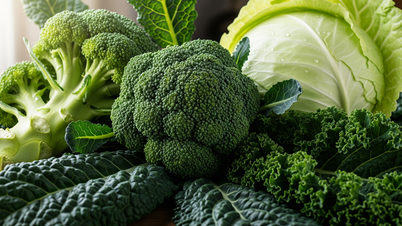
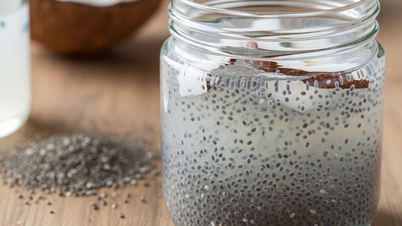
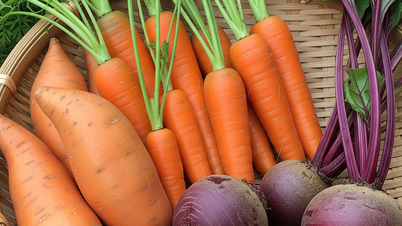
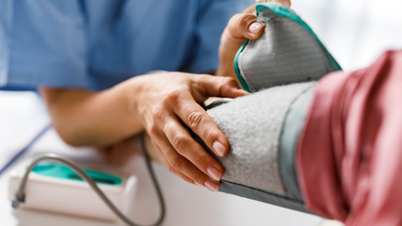

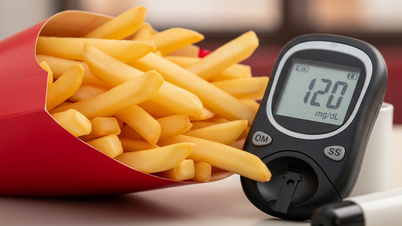


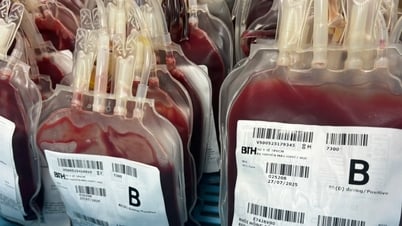


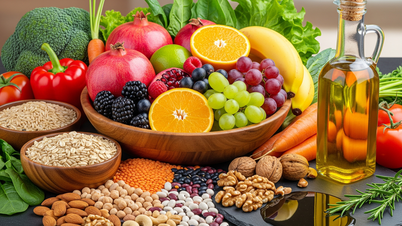

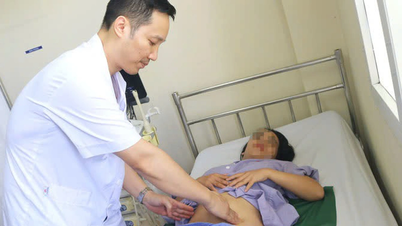






































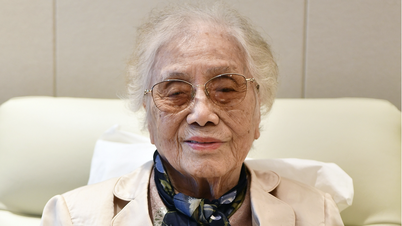












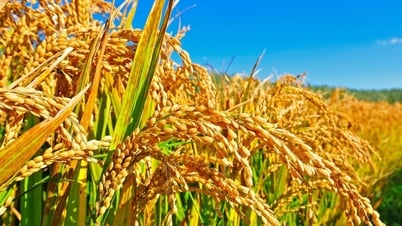























Comment (0)